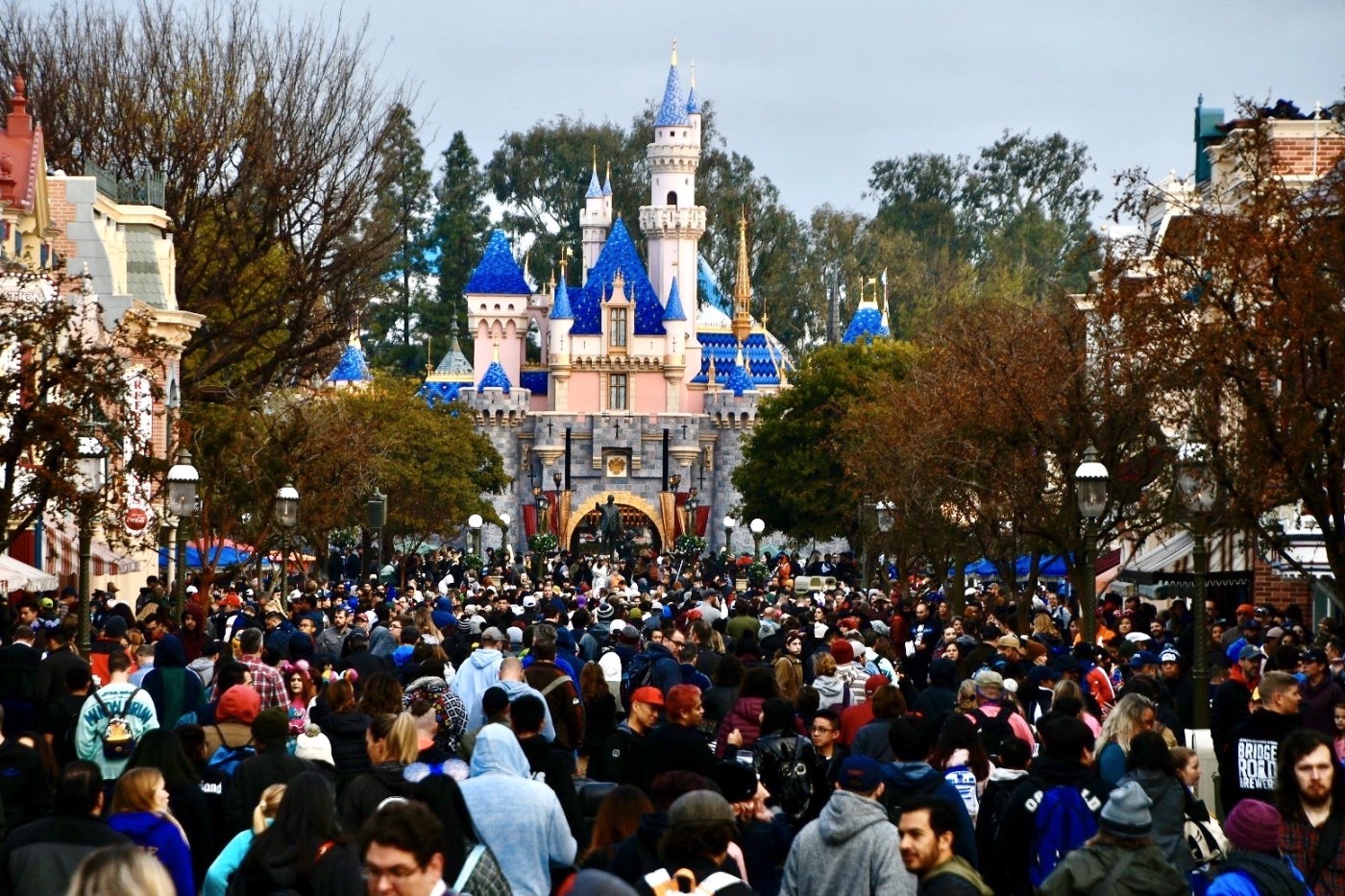A proposal to ask Anaheim voters if the city should collect an entertainment tax died with the City Council Tuesday, Oct. 28.
Councilmember Natalie Rubalcava first proposed a tax in September as a way to add a new revenue stream for the city’s coffers. The proposal that emerged was to ask voters to consider ballot measures creating a 3% city tax on admission tickets to theme parks and sports and entertainment venues with a “capacity exceeding 20,000 people” and a parking tax of 10% on facilities with more than 1,500 spaces.
Dozens of community members and leaders attended the meeting to address the dais; the city’s proposed entertainment tax on theme park tickets and parking received a mixed reception.
Rubalcava found little support among her council colleagues and, in the end, didn’t ask them to vote on whether to put the ballot measures before voters.
“My intention with this tax is not to hurt business,” Rubalcava said. “As a fourth-generation Anaheim resident, I was elected by the people of Anaheim to ensure we are properly funding our city budget, but that we are also creating safe neighborhoods.”
The way the proposal is written, the tax on admission tickets to entertainment venues, often referred to as a gate tax, would have applied to Disneyland’s two theme parks and Angel Stadium.
The proposed tax would have only applied to privately owned or operated venues, so the Anaheim Convention Center wouldn’t count.
The Honda Center, which has a maximum capacity of 19,000 people, falls short of the capacity caveat, and none of the new entertainment venues the OCVibe project is building around the arena would make the threshold.
And, parking at its three new garages is folded into event ticket costs, so city officials said the 10% fee would not be triggered.
Though Angel Stadium would have the capacity, per an existing lease agreement in place through 2038, the baseball team would likely be entitled to reimbursement of any admission and parking taxes collected, city officials said.
City officials estimated the revenue from Disney parks attendance and parking would generate $108 million to $164 million annually toward the city’s day-to-day operations, such as providing police and fire services, operating libraries and maintaining city streets.
One-day tickets to Disneyland start at $104 and, at the busiest times, can be more than $200. Estimates put the number of annual visitors to Disneyland Resort parks at more than 27 million.
Anaheim does not currently have an entertainment tax.
Instead, nearly 40% of the city’s budget is driven by a 15% tax on hotel stays.
This fiscal year, more than $302.8 million in taxes and fees for the city are expected to be generated from the resort area, which covers 1,100 acres and includes the area immediately surrounding the Disneyland Resort and the Anaheim Convention Center.
The region, bordered by Interstate 5, Vermont, Walnut and Chapman avenues, represents less than 4% of Anaheim’s total area. But according to city estimates, the area will bring the city 63% of its general fund tax revenues this year.
More money is expected to come from the resort area in the coming years.
Last year, the Anaheim City Council unanimously approved DisneylandForward, updating the mix of theme park, hotel, retail, dining and entertainment uses allowed on the eastern and western edges of the resort – creating the opportunity for Disney to expand its offerings within its current footprint. New lands and attractions are expected.
As part of that development, Disneyland has pledged $85 million for street improvements in the resort area, $30 million for affordable housing and $8 million for community park improvements.
Disneyland officials said they feared the proposed entertainment tax would discourage tourists, already subject to the 15% hotel tax, from visiting the area.
That’s a concern echoed by Jeffrey Ball, president of the Orange County Business Council.
“Our concern is that it could dissuade visitors who would normally choose to come to Anaheim. And also, once they get here, they may not spend as much money,” Ball said.
“We have a lot of small businesses and other employers that make their living on the visitation that we get to Anaheim and so much of that is centered around Disney,” he said. “What we are looking at is a potential loss of jobs that really impact the whole region, not just Anaheim.”
Ball added that he doesn’t think the tax was being proposed at an “appropriate” time. The city is already set to free up more than $120 annually in its budget starting in 2027 when it pays off bonds it took out to expand the resort area back in the 1990s. Those funds are expected to turn the city’s structural deficit into a surplus, according to city projections.
Mayor Ashleigh Aitken, reiterating her fellow councilmembers’ comments, said she was open to exploring options to diversify the city’s revenue streams. But she’s reluctant to support the tax proposal.
“We can keep trying to work with our partners and work with our community and work with our business leaders to attract more investment, or we can bleed them dry,” Aitken said. “I don’t think doing this approach is going to be better for us.”
This is not the first time Anaheim entertained discussions of a gate tax. The City Council in 2022 shot down a proposal to ask voters if they’d support a 2% ticket-tax on the city’s largest attractions.
“What we’ve done is allow Disney to thrive in our local community,” Rubalcava said. “I just think it’s time we also consider an opportunity for our residents to benefit from that thriving economy as well.”
At the end of the meeting, Rubalcava made a motion, backed by Councilmember Natalie Meeks, to continue talks exploring options for diversifying Anaheim’s revenue. Those discussions would be informed by the city data put together for the gate tax discussion, officials said.
That motion passed with a 5-2 vote, with Aitken and Councilmember Ryan Balus opposed.
